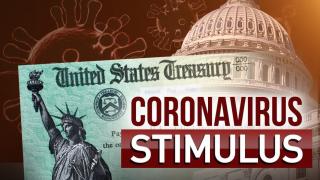COVID-19 Stimulus Payment Scams

The United States Congress recently passed a large COVID-19 relief and stimulus package that promises to provide financial relief to many Americans. Scammers have recently attempted to use the promise and anticipation of stimulus payments to acquire personal identifying information [PII] from unsuspecting victims.
In a recent example of how scammers are trying to use the anticipation of stimulus payments to collect PII, emails that appeared to be from the United States Treasury Department were sent by scammers claiming that the recipient was selected as one of the first to receive a stimulus payment. The phony email requested that the recipient provide PII including phone number, date of birth and profession in order to receive a stimulus payment.
What You Should Know:
The Internal Revenue Service recently released guidance informing the public that most people do not need to take any action in order to receive stimulus payments.
Government agencies are not sending out emails asking for personal information in order to receive funds or other pandemic relief opportunities.
How to Protect Yourself:
Any request via a phone call, text message or email for personal identifying information, or any other information as a prerequisite for receiving a stimulus payment should be heavily scrutinized.
Do not engage with callers or emails from unrecognized sources.
Do your homework, ask questions and use the IRS website for accurate information.
New Hampshire residents who receive requests for information in exchange for a stimulus payment should contact the Consumer Protection and Antitrust Bureau of the Attorney General's Office.

